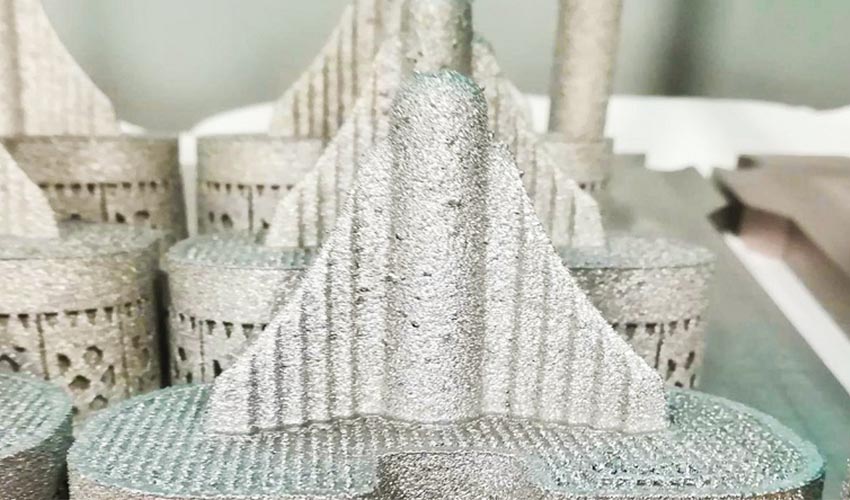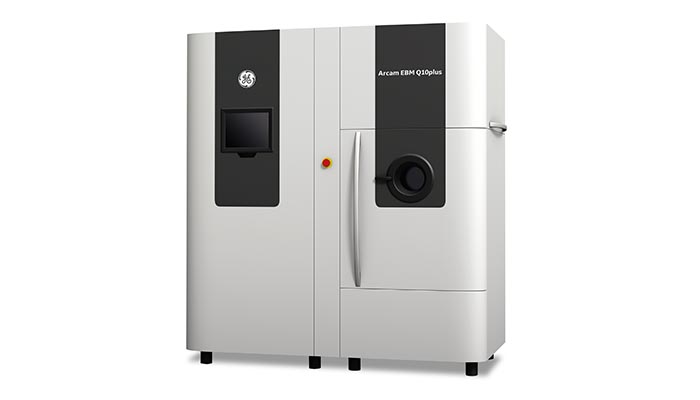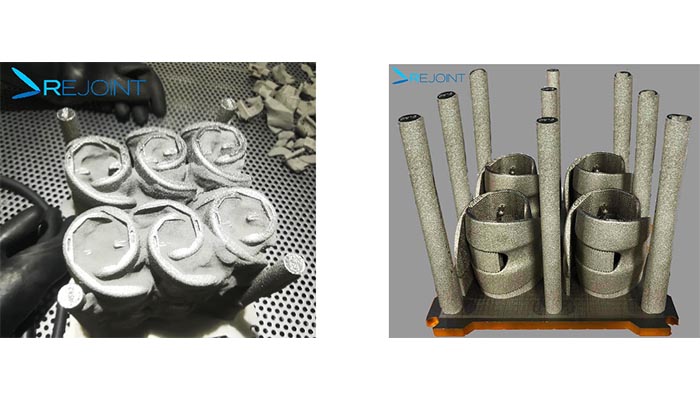Knee replacement with additive manufacturing and artificial intelligence

The Italian medical implant manufacturer, REJOINT, announced it is using GE Additive’s Electron Beam Melting (EBM) technology to additively manufacture knee implants. The medical company aims to offer a customized medical solution to patients. Both additive manufacturing and artificial intelligence are key to its growth strategy. EBM technology is part of the Powder Bed Fusion family of technologies and works by using an electron beam as an energy source to fuse metal particles to create a part layer by layer – in this case the company is creating medical knee implants made from cobalt-chrome. In fact, Gian Guido Riva, CEO at Rejoint explains: “When it came to additive manufacturing, we were initially undecided about the most suitable solution for personalized cobalt-chrome prosthetics and were evaluating DMLM and EBM. Both modalities, in fact offer a good level of resolution and quality, but we ultimately opted for the GE Additive Arcam EBM Q10plus system.”
By using additive manufacturing, the Italian manufacturer is able to create prosthetics that are adapted to patients’ anatomy. Starting with a CT scan of the patient, REJOINT starts by creating a model of the implant on CAD software. Following this step, it uses artificial intelligence algorithms to analyze the images and identify the most suitable size for each specific case. Essentially, AI is used to compare the unique anatomy of a patient on several thousand prosthetic dimensions, each with as many dimensional variables in specific areas of the implant. The surgeon is then offered the optimal configuration for positioning both the prosthetic components and for simulating the operation.

Arcam Q10plus | Credits: GE Additive
Reimagining knee replacement
For some context, GE Additive explains that the market for knee implants is estimated at around five million implants per year worldwide. In advanced markets, already in 2011, the number of surgical procedures was 150 per 100,000 inhabitants, with peaks of 250 in some markets such as Austria and Switzerland. One of the issues in this surgery is that most implants are standard prosthetic systems, in other words, there is a limited range of sizes available. Therefore, REJOINT’s process, together with GE Additive’s technology, will enable customized implants for patients. Gian Guido Riva added: “At the moment, ours is still the only solution for additively manufactured knee prostheses in cobalt-chrome to be certified and introduced to the market.”
It’s not just the implant that will be tailored to the patient, but also for the preoperative planning right through to the rehabilitation phase. “Having all this data made us realize that we could link it to the information recorded during the operation. And in turn, this data could still be further improved upon if we could collect through the use of wearable devices (such as sensorized headbands and socks), both pre- and post-operative measurements, on how the patient loads their limb or bends their knee, until post-operative evaluation questionnaires have been completed,” added Riva. REJOINT estimates that by 2022 it will have enough data (from thousands of cases) to provide an unparallel level of understanding on the whole process. You can find more information HERE.

3D printed femoral condyles | Credits: GE Additive, GEADPR038
What do you think of this collaboration? Let us know your thoughts in the comments below or on our Facebook and Twitter pages! Sign up for our free weekly Newsletter to receive all the latest news in 3D printing straight to your inbox!







